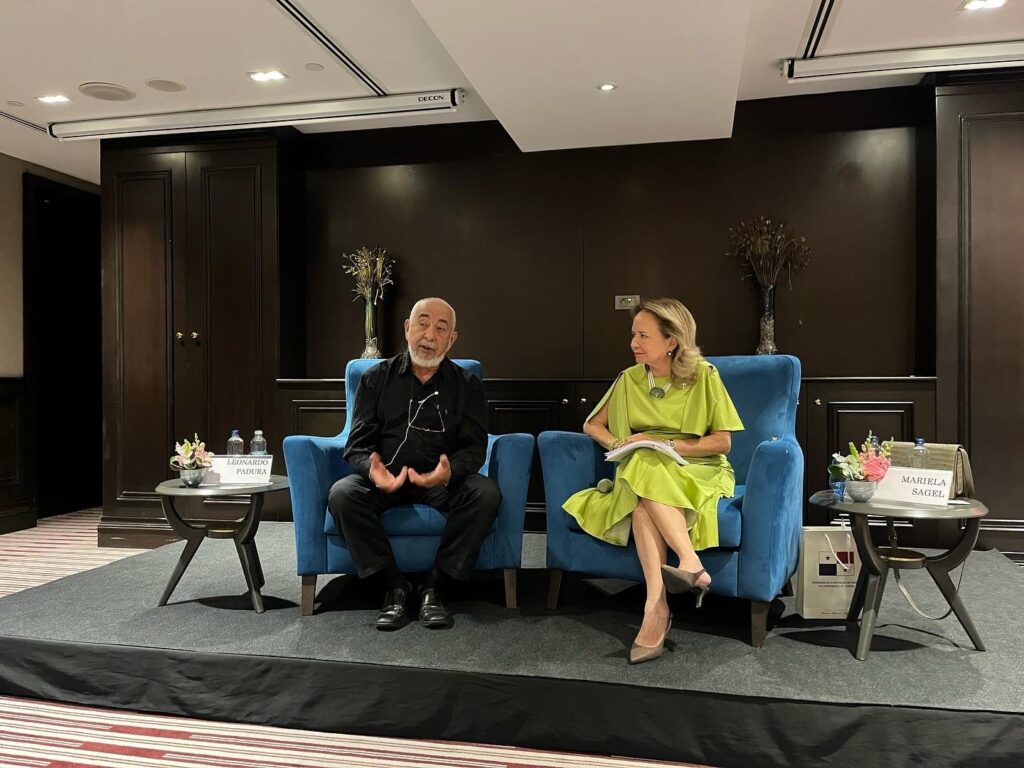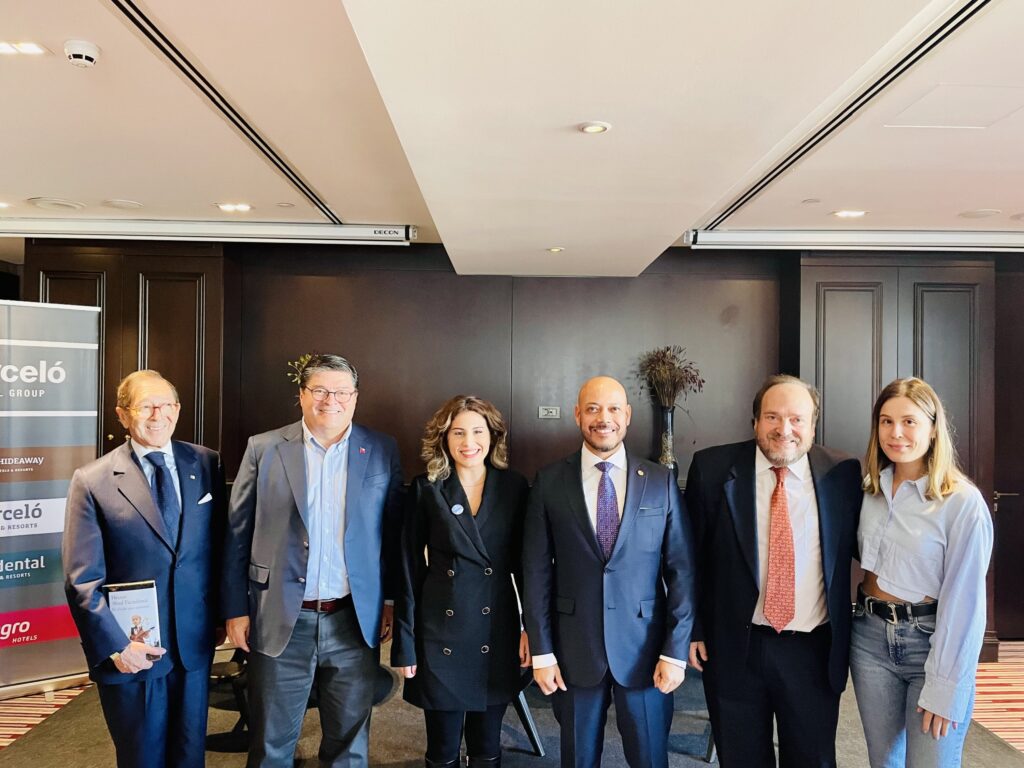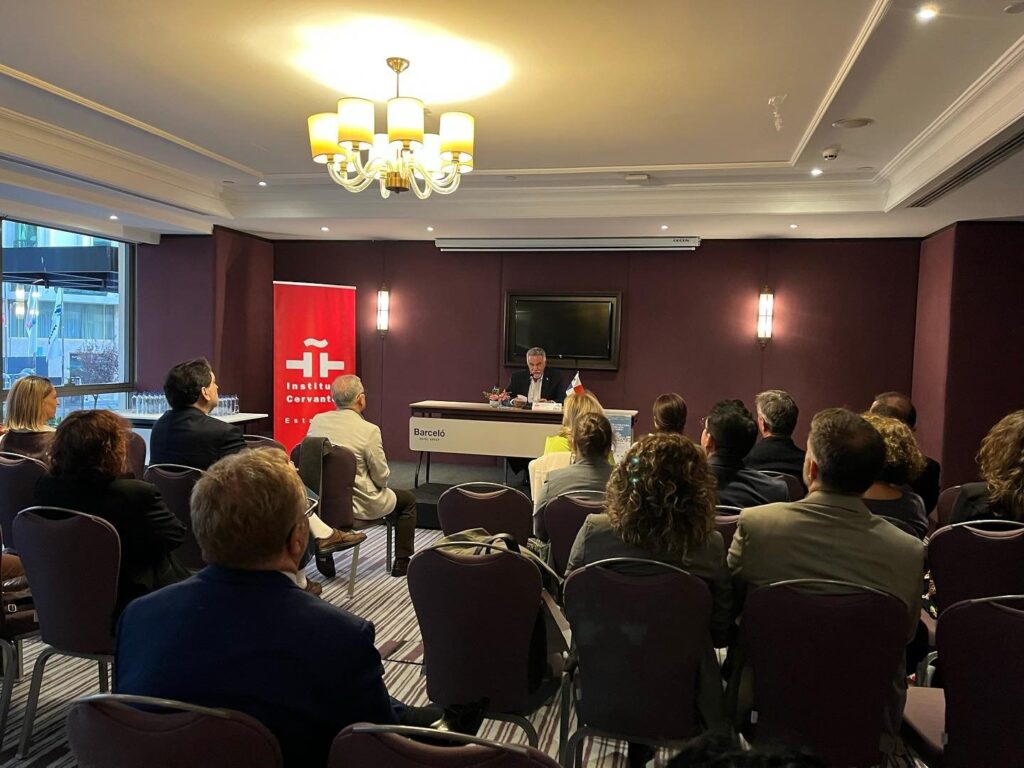Publicado en el sitio web Daily Sabah, el 18 de octubre de 2023.

‘Encounter of Ibero-American Literature’ event held in Istanbul welcomed Ibero-American writers, ambassadors and readers throughout 3 days, celebrating the cultural richness and diversity of the Spanish-speaking community and writers whose works were translated into Turkish
Magical realism. Historical roots. Cultural diversity. Harsh realities.
These are unarguably among the four key descriptors of the Ibero-American literary landscape. To celebrate this great heritage, Istanbul hosted perhaps the most significant and comprehensive cultural event ever conducted in the Spanish language. In collaboration with the Spanish Embassy in Türkiye and Istanbul Cervantes Institute, the «Encounter of Ibero-American Literature» event provided an opportunity for countries under the Spanish language umbrella to narrate their own stories, in their own voices and heritage.
One of the main reasons for holding this event in Istanbul was the increasing translation of Spanish literary works into Turkish, as the readers embraced these works very quickly. This event was also a vivid depiction of how this culture is gaining recognition day by day in Türkiye. Additionally, its closing date coinciding with Oct. 12, was a nod to the celebration of Hispanic Day and brought together 15 renowned writers from the region.
Alongside these writers, esteemed ambassadors carrying out their missions in Türkiye, including Ambassador Hector Jaime of El Salvador, Ambassador Rodrigo Arcos of Chile, Ambassador Jose Luis Martinez y Hernandez of Mexico, Ambassador Julio Anibal Riano Velandia of Colombia and Ambassador Mariela Sagel of Panama, showcased the cultural richness of the Spanish-speaking community in Türkiye.
Meantime, I had the opportunity to discuss the significance of Istanbul as a central hub for this event with Santiago Herrero Amigo, the director of Cultural and Scientific Relations at the Spanish Agency for International Cooperation and Development (AECID).
«Events like these are of utmost importance because they enable writers to travel, present their novels, and promote the Spanish language. What makes this event truly remarkable is its collaboration with Latin American countries. We share a common language, and spreading it collectively, as it’s happening here, is immensely significant. This event unites Spanish and Latin American writers. In its initial stages, Latin American countries offer a glimpse of what we have. If there are subsequent congresses like this, they could extend not only to the Spanish or Latin American audience but also to Turks who speak or are learning Spanish,» he emphasized.
«The choice of Istanbul as the event venue is crucial because Türkiye is increasingly showing interest in the Spanish language. Events like these, which promote the language, are vital to introduce writers and the Spanish language to Turkish nationals who wish to delve deeper into it and learn Spanish,» he added.
The conference featured discussions by Panamanian writer Juan David Morgan, who explored Panama’s history in his literary works, Vanessa Monfort, who focused on the impostor syndrome in literature, Ecuadorian writer Natalia García Freire, who delved into the Cordillera, and Cuban author Leonardo Padura, depicting Havana and Mario Conde. Santiago Roncagliolo from Peru delved into Peruvian literature in the context of post-Mario Vargas Llosa, while Spanish writer Javier Moro explored the purpose of travel literature in an increasingly homogenized world.

Highlighted writers
Barcelona-born Vanessa Montfort, a Spanish writer and playwright known for her engaging storytelling and literary contributions, explored the life of Maria de la O Lejarraga, also known as María Martinez Sierra, a historical and literary figure in 20th-century Spain through her book. Montfort took the listeners through significant events in Lejarraga’s life, and her relationships with prominent figures such as Juan Ramon Jimenez, Manuel de Falla, María Guerrero and others.
Her session revolved around Maria Martinez Sierra’s contribution to the works signed by her husband, Gregorio Martinez Sierra, within the frame of the impostor syndrome, uncovering the truth behind the hidden literary figure.
Mario Levi, a renowned Turkish author of Sephardic Jewish descent, on the other hand, shared his storytelling and profound insights into the complexities of identity and cultural heritage, conversing about Türkiye, Sephardic heritage and Spain with historical and literary reminiscences.
Through his novels and essays, Levi sheds light on the often overlooked aspects of Istanbul’s diverse cultural landscape, making him a cherished voice in the literary world.

Leonardo Padura Fuentes, commonly known as Leonardo Padura, a highly acclaimed Cuban novelist and journalist, also took the stage, sharing insights and explorations of contemporary Cuban society. He is best known for his detective novels featuring the character Mario Conde, a disillusioned detective. His novels, often categorized as crime fiction, delve deeply into the socio-political landscape of Cuba, offering readers a nuanced perspective on the country’s history, culture, and people.
Hector Abad Faciolince, a prominent Colombian novelist, essayist, and journalist, celebrated for his literary achievements and social activism took part in the colloquium. Medellin-born writer hails from a family deeply engaged in social and political issues. His father, Hector Abad Gomez, was a renowned human rights activist and physician, whose tragic assassination in 1987 deeply influenced Abad’s perspective on social justice and human rights.
Abad’s writing is characterized by its profound empathy, keen observations of human nature, and deep concern for the socio-political landscape of Colombia. He is widely regarded for his ability to blend personal narratives with broader societal issues, creating powerful and thought-provoking literary works.